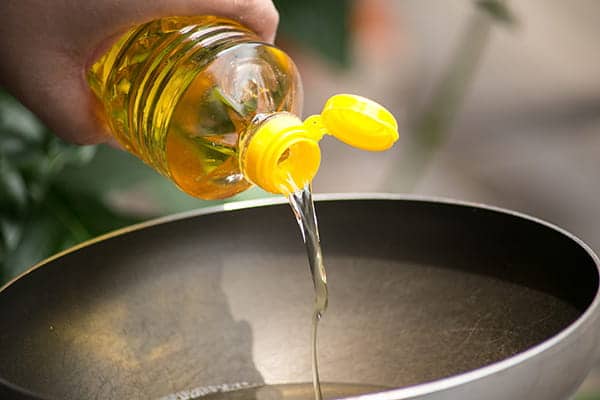Are you interested and looking for tips to start your own used cooking oil recycling business in Nigeria? If so, this article will guide you through the process of getting started.
Used cooking oil is a valuable resource that can be repurposed into biofuels and other useful products. By recycling this waste product, you can contribute to a greener environment and potentially create a profitable business.
In this article, we will explore the steps involved in launching a used cooking oil recycling business, from obtaining the necessary permits to finding customers for your recycled oil.
So, let’s dive in and discover how you can start this eco-friendly cooking oil recycling business into a successful enterprise.
Cooking Oil Recycling Business Overview
A used cooking oil recycling business involves collecting, processing, and repurposing cooking oil from various sources.
The process begins with the collection of used cooking oil from restaurants, homes, and other establishments.
After collection, the oil is then transported to a processing facility where it undergoes filtration and purification to remove impurities and contaminants.
Once purified, the oil can be transformed into valuable products such as biodiesel, soap, animal feed, or even used as an ingredient in various industrial applications.
This business not only helps prevent environmental pollution by diverting used cooking oil from being improperly disposed of, but it also contributes to the production of sustainable energy and reduces reliance on fossil fuels.
Additionally, it provides a profitable opportunity for entrepreneurs and promotes the principles of circular economy and waste reduction.
How Recycled Cooking Oil is Used in Nigeria
Recycled cooking oil is used across different areas in Nigeria such as the following;
1. Biodiesel Production: Recycled cooking oil is a key feedstock for biodiesel, which can be used as an alternative and sustainable fuel source, reducing greenhouse gas emissions and dependence on fossil fuels.
2. Soap companies: The fatty acids present in recycled cooking oil are used in soap and detergent production, contributing to the local manufacturing industry.
3. Animal Feed Production: Processed used cooking oil can be added into animal feed formulations, enhancing nutrition and supporting livestock farming.
4. Industrial Lubricants: Refined recycled oil serves as a base for industrial lubricants, benefiting machinery maintenance and local industries.
5. Cosmetics and Personal Care Products: Some components of recycled cooking oil find applications in cosmetics, such as skin moisturizers and hair treatments.
5. Candle Manufacturing: The fatty acids from used cooking oil are utilized in candle production, promoting local artisanal businesses.
6. Energy Generation: Recycled oil can be converted into biogas or used as a fuel source in energy production, contributing to renewable energy initiatives.
7. Plastics and Rubber Processing: Some recycled cooking oil components are used in the production of plastics and rubber materials.
8. Pharmaceuticals: Certain derivatives of used cooking oil can be used in pharmaceutical formulations, supporting the local healthcare industry.
9. Bio-Based Solvents: Recycled oil can be transformed into bio-based solvents for various industrial applications.
10. Leather Tanning: In the leather industry, recycled oil can be used in the tanning process.
11. Paint and Coating Industry: Certain derivatives from recycled oil are used in the formulation of paints and coatings.
12. Agricultural Applications: Recycled oil can be employed in soil conditioning and plant protection.
13. Culinary Uses: Refined recycled cooking oil can be used in food preparation, adhering to safety standards.
14. Waste Management: Using recycled oil as an alternative to disposal helps reduce environmental pollution and waste management challenges.
Common Cooking Oil in Nigeria and Africa
1. Vegetable Oil: The most common type of used cooking oil, derived from various plant sources such as palm, soybean, sunflower, and groundnut oils.
2. Palm Oil: Widely used in African cuisine, palm oil is a staple cooking oil, often recycled from domestic and commercial cooking processes.
3. Groundnut Oil: Extracted from peanuts, groundnut oil is a popular choice for frying and cooking, contributing to the used oil waste stream.
4. Sunflower Oil: Used for both culinary and industrial purposes, sunflower oil is recycled after being discarded from households and food businesses.
5. Coconut Oil: Found in tropical regions, coconut oil is used in traditional dishes and is collected as used cooking oil for recycling.
6. Soybean Oil: A common cooking oil, soybean oil is utilized extensively and contributes to the used cooking oil supply.
7. Palm Kernel Oil: Derived from palm kernels, this oil is used in various dishes and contributes to the waste stream.
8. Olive Oil: Although less common in Africa, olive oil is found in certain regions and is recycled when discarded.
9. Sesame Oil: Used in African and Asian cuisine, sesame oil is another type of used cooking oil.
10. Cottonseed Oil: Used less frequently but still present in cooking, cottonseed oil is recycled from various sources.
11. Animal Fat: Used for frying and cooking, animal fats contribute to the used cooking oil waste stream.
12. Rapeseed Oil: Also known as canola oil, it is used in cooking and can be found in the used oil recycling process.
13. Safflower Oil: Used sparingly but still contributing to the waste, safflower oil is collected for recycling.
14. Corn Oil: Used for frying and baking, corn oil is another type of cooking oil.
15. Rice Bran Oil: Extracted from rice bran, this oil is used in certain dishes and contributes to the waste oil supply.
How to Start Used Cooking Oil Recycling Business
Starting a used cooking oil recycling business can be a profitable and environmentally friendly venture. This article aims to provide a concise guide on how to start a used cooking oil recycling business, highlighting the key steps and considerations for aspiring entrepreneurs.
Step 1: Conduct a Research and Feasibility Study
The success of any business relies on how prepared and how it started in the beginning. One of the first steps to take is to conduct thorough research to understand the used cooking oil recycling industry.
Learn about the local regulations, market demand, competition, potential customers, and available resources. Determine if there is a viable market for recycled cooking oil in your area.
According to Statista, Revenue in the edible oils market amounts to US$10.8bn in 2023. The market is expected to grow annually by 10.53% (CAGR 2023-2028). In global comparison, most revenue is generated in India (US$32,780m in 2023).
Step 2: Have a Business Plan
The second step is for you to develop a comprehensive business plan that outlines your business goals, target market, marketing strategies, financial projections, and operational procedures.
This plan will serve as a roadmap for your business and will be useful when seeking funding or partnerships.
Also, you should imagine the negative things that could happen in the cause of running the business to enable be proactive.
Step 3: Obtain a Regulatory Permit
Then, you have to familiarize yourself with the legal and regulatory requirements for operating a used cooking oil recycling business in your area.
Obtain necessary permits, licenses, and certifications like CAC. The next thing is to comply with health and safety regulations, waste management guidelines, and environmental protection laws.
Step 4: Collection and Storage
Establish a system for collecting used cooking oil from various sources such as restaurants, hotels, cafeterias, and food processing facilities.
Build relationships with these companies and eateries to secure a regular supply of used oil. Set up appropriate storage facilities that meet safety standards and prevent contamination.
Step 5: Transportation and Logistics
The fifth step is for you to arrange transportation methods to collect used cooking oil from suppliers and deliver it to your recycling facility. This may involve investing in a fleet of vehicles or outsourcing the transportation services.
Depending on your budget, you can get mini delivery buses that will foster the movement of this oil from one location to another
Step 6: Set Up a Recycling Facility
You also have to set up a recycling facility and equip it with the necessary equipment and machinery for processing and refining used cooking oil. This may include oil filter presses, settling tanks, storage tanks, and filtration systems.
Step 7: Processing and Refining
Here, you have to process the collected used cooking oil through various refining techniques to remove impurities and contaminants. The refined oil can then be used for various applications, such as biodiesel production, animal feed, or industrial uses.
Step 8: Marketing and Sales
Now is the time to make your business known. You have to develop a marketing strategy to promote your recycled cooking oil products.
How To Market Used Oil
Selling used oil can be a profitable endeavour while also promoting sustainable waste management.
Here’s a step-by-step guide on how to sell used oil:
- Collect and store the used oil
- Filter and purify the oil
- Check local regulations and requirements for selling used oil in your area.
- Reach out to local recycling centres, biodiesel producers, restaurants, cafes, or commercial kitchens in need of your oil.
- Engage in discussions with potential buyers to negotiate prices, quantity, and delivery terms.
- Use social media platforms to increase visibility
- Arrange transportation
- Complete necessary documentation
- Keep detailed records of each sale, including the quantity of oil sold, the buyer’s information, and the financial transactions.
How to Make Money Recycling Oil
One effective approach to making six figures from this oil business is to sell your cooking oil waste to recycling companies.
Additionally, you can generate profits by creating high-quality items like biodiesel using the used oil and selling them.
Cooking Oil Recycling Machine
A cooking oil recycling machine is a specialized device designed to efficiently and effectively recycle used cooking oil.
These machines play a crucial role in promoting environmental sustainability by preventing the improper disposal of cooking oil, which can lead to pollution and blockages in sewer systems.
The machines typically work by filtering and purifying the used oil, removing impurities and contaminants, and transforming it into a usable form.
The price of a cooking oil recycling machine ranges from $10,000 to as high as $2,000,000 depending on capacity and features.
However, the price can vary depending on several factors, such as its capacity, features, and manufacturer.
Generally, these machines range in price from a few thousand dollars to tens of thousands of dollars, with more advanced models being at the higher end of the price spectrum.
You can discover cooking oil recycling machines for sale on Alibaba
- Read Also: Automobile Oil Business Blueprint
Conclusion: Start Cooking Oil Recycling Business
Starting a used cooking oil recycling business can be a rewarding and environmentally conscious venture. By following the steps outlined in this article, you can generate a sustainable source of income.
So, seize the opportunity, gather your resources, and get ready to make a difference with your used cooking oil recycling business.

Legacy Benjamin is a serial SEO content writer with a half-decade of experience in the field of blogging. He is also a skilled business consultant, providing valuable insights to companies and individuals seeking growth and success. His expertise lies in crafting compelling and engaging content that captivates audiences and drives business results. For business deals, contact him

